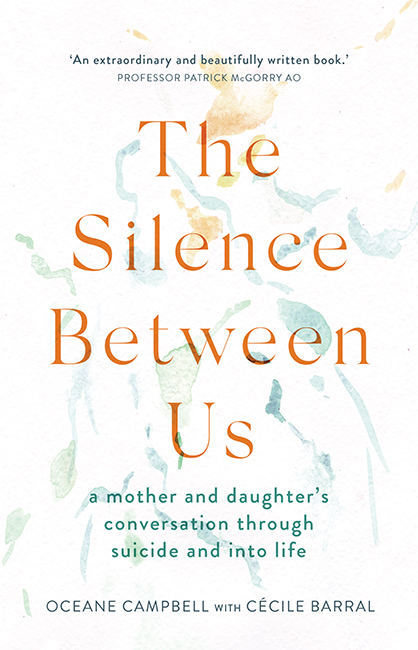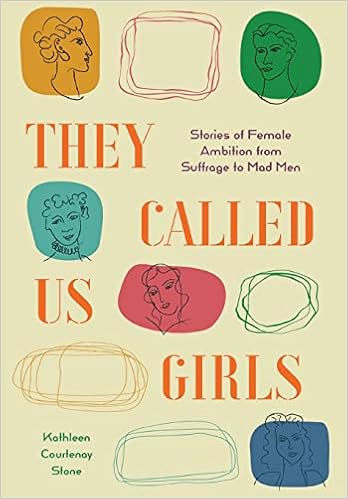 Listen Mama is less a traditional memoir and more a compilation of the author’s journal entries, many of which were written at the tender but precocious age of 14. These entries stretch over more than 19 years, covering in real time the heartaches, health problems, and general misfortunes that were thrown at this unfortunate person. What Williams brings to the memoir is a clarity that could cut through bone and a sober reconciliation with the past that can only come with age and knowing.
Listen Mama is less a traditional memoir and more a compilation of the author’s journal entries, many of which were written at the tender but precocious age of 14. These entries stretch over more than 19 years, covering in real time the heartaches, health problems, and general misfortunes that were thrown at this unfortunate person. What Williams brings to the memoir is a clarity that could cut through bone and a sober reconciliation with the past that can only come with age and knowing.
Category: Book Reviews
Book Reviews
A review of Scale Model of a Country at Dawn by John Sibley Williams.
 Scale Model of a Country at Dawn is an incantation of fluctuating tides and currents, it is an alchemy of stars, horses, ghosts, salt, dreams, and especially prayers. It is an ebb and flow of beautiful lyric poems that carry us over the shifting ground upon which we build our lives, sustaining by its music, but never pretending to a security that no one can promise.
Scale Model of a Country at Dawn is an incantation of fluctuating tides and currents, it is an alchemy of stars, horses, ghosts, salt, dreams, and especially prayers. It is an ebb and flow of beautiful lyric poems that carry us over the shifting ground upon which we build our lives, sustaining by its music, but never pretending to a security that no one can promise.
Great new giveaway!
 We have a copy of Greetings from Asbury Park by Daniel H Turtel to give away!
We have a copy of Greetings from Asbury Park by Daniel H Turtel to give away!
To win, sign up for our Free Newsletter on the right-hand side of the site and enter via the newsletter. Winner will be chosen by the end of April from subscribers who enter via the newsletter. Good luck!
A review of The Alphabet of Women edited by Miriam Hechtman
 The richness and variety of topics and styles is impressive. Many of the stories in the poems tell us about the strength of women and their struggle to survive in a male dominated world. Reading page by page we go through women’s lives, from the quotidian to the extraordinary, from the intimate to the distant, from the general to the particular.
The richness and variety of topics and styles is impressive. Many of the stories in the poems tell us about the strength of women and their struggle to survive in a male dominated world. Reading page by page we go through women’s lives, from the quotidian to the extraordinary, from the intimate to the distant, from the general to the particular.
A review of American Daguerreotypes: Ekphrastic Poems by James Penha
 The poems are uniformly crisp, accessible, and well-written, and tuned to each illustration. All in all, a fascinating and well-done presentation of graphic, history, and poetry in a lovely and unique format. From the intriguing concept to the full-realized poems, this chapbook is a delight to view and read.
The poems are uniformly crisp, accessible, and well-written, and tuned to each illustration. All in all, a fascinating and well-done presentation of graphic, history, and poetry in a lovely and unique format. From the intriguing concept to the full-realized poems, this chapbook is a delight to view and read.
New giveaway!
We have a copy of Pesticide by Kim Hays to give away!
to give away!
To win, sign up for our Free Newsletter on the right-hand side of the site and enter via the newsletter. Winner will be chosen by the end of April from subscribers who enter via the newsletter. Good luck!
A review of The Silence Between Us by Oceane Campbell and Cécile Barral

A review of chalk borders by Sarah St Vincent Welch
 St Vincent Welch’s poetry is characterised by originality, sincerity and engagement. Some of the poems have nostalgic overtones, while others leave room for complex reader interpretation and simultaneous meanings.
St Vincent Welch’s poetry is characterised by originality, sincerity and engagement. Some of the poems have nostalgic overtones, while others leave room for complex reader interpretation and simultaneous meanings.
A review of They Called Us Girls by Kathleen Courtenay Stone
 All in all, They Called Us Girls is a fascinating, inspiring, and well-written collection of biographies of seven exceptional women, bios told with personality and insight which bring these women and their triumphs to life. A grand celebration of women, released during March’s Women’s History Month, this is a book for men and women both to relish.
All in all, They Called Us Girls is a fascinating, inspiring, and well-written collection of biographies of seven exceptional women, bios told with personality and insight which bring these women and their triumphs to life. A grand celebration of women, released during March’s Women’s History Month, this is a book for men and women both to relish.
A review of House of Sticks by Ly Tran
 Ly Tran’s House of Sticks beautifully captures what it means to be an immigrant in America: the struggle to adapt to your new world’s norms, the desperate desire to succeed there, and the love and heartache that your old life still haunts you with. The juxtaposition of holding onto her old identity while embracing her American one with her belief that escaping everything that is connected to Vietnam is the only way to succeed in the U.S. draws the reader in with the perpetual tension in her mind and heart, which Tran eventually evolves into the understanding that “[her father] was trying to save [their] lives” rather than ruin them.
Ly Tran’s House of Sticks beautifully captures what it means to be an immigrant in America: the struggle to adapt to your new world’s norms, the desperate desire to succeed there, and the love and heartache that your old life still haunts you with. The juxtaposition of holding onto her old identity while embracing her American one with her belief that escaping everything that is connected to Vietnam is the only way to succeed in the U.S. draws the reader in with the perpetual tension in her mind and heart, which Tran eventually evolves into the understanding that “[her father] was trying to save [their] lives” rather than ruin them.